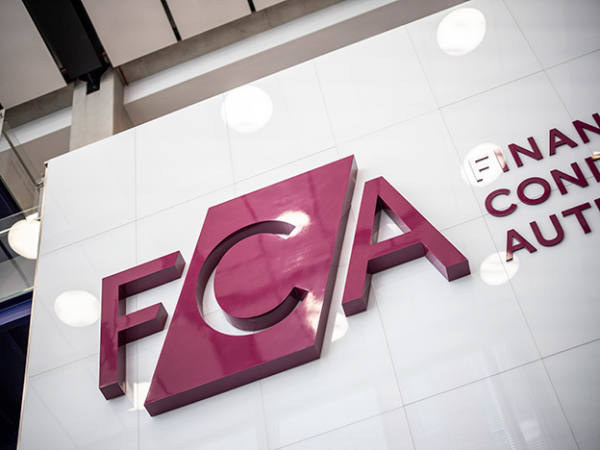- Good long-term performance
- Relatively wide discount to NAV
- Share price can be volatile and fees of underlying holdings are high
An unusually wide discount on shares in RIT offer the opportunity to access investments that are usually the preserve of the elite on the cheap. Despite a slight setback in markets last week when the US central bank, the Federal Reserve, signalled it might not be as prepared to tolerate inflation as previously expected, markets have generally proved very strong this year. For example, over the year to 18 June the S&P 500 index went up 11.7 per cent and the FTSE 100 up 10.5 per cent. But there are now concerns that too much good news might already be priced in. Investment bank Credit Suisse’s investment committee has recently warned of “an elevated level of investor complacency” across asset markets, implying that there is “higher downside risk to the newsflow than usual”.
Against this backdrop, RIT Capital Partners (RCP), which was trading at a discount to its net assets of 8 per cent on 18 June, looks like an attractive core holding for long-term investors. This investment trust aims to “deliver long-term capital growth, while preserving shareholders’ capital.” It looks to do this by investing in a range of assets and going short (taking bets on assets' prices falling) in private and public markets. And it invests in other funds that private investors could not invest in directly themselves.
While the trust’s share price can be volatile and should be viewed as a relatively risky investment, its long-term record is strong. Between its inception in 1988 and the end of 2020, the trust’s net asset value (NAV) per share total return compounded at 11.2 per cent a year. Over the same period the total return to shareholders was 11.7 per cent a year – a meaningful outperformance of global equity markets.
RIT Capital Partners' board has set ambitious performance targets: absolute outperformance of its portfolio’s net assets in excess of the retail price index plus 3 per cent a year, and relative NAV total return out performance in excess of MSCI All Country World Index. And it has been successful in its goal of lower volatility than pure equity markets, with its managers calculating that the trust has participated in 73 per cent of equity market upside and only 38 per cent of market declines since its inception. Last year, the trust delivered a total NAV return of 16.4 per cent, outperforming both reference hurdles – its ninth consecutive year of positive returns.
Fund composition
RIT Capital Partners is mainly invested in quoted equities, with long positions making up 45 per cent of its assets at the end of April. Within the quoted equity portfolio, 57 per cent was in long-only funds, 22 per cent in hedge funds and 21 per cent in individual companies as of 31 December 2020. Disney (US:DIS) and Visa (US:V) were both new additions last year, with coffee and soft drinks company Acorn Holdings, telecomms group Helios Towers (HTWS), health tech conglomerate IQVIA (US:IQV) and Google-owner Alphabet (US:GOOGL) making up the bulk of the rest.
About a third of the quoted portfolio was in US equities with 31 per cent in Asia, an area that has been a key contributor to performance. Its holdings in this area include Spring Opportunities, an all-cap diversified China fund, and Ward Ferry Asian Smaller Companies, which accounted for 6.6 per cent of the trust at the end of last year.
Private equity funds made up 18 per cent of the trust, and direct private investments and real assets a further 9 per cent. Allocation to private investments, which tends to target companies engaging in disruptive technologies in the US and Asia, was the largest positive contributor to NAV performance last year. RIT Capital Partners' managers have strong connections in this area, which is crucial for accessing the best private companies and they have had some notable successes in this area.
A recent example is Coupang (US:CPNG), a South Korean e-commerce business that listed on the New York Stock Exchange in March. RIT Capital Partners' managers said that on the first day of trading Coupang's closing price represented a 222 per cent increase in the value of their investment, although Coupang’s share price has since fallen – about 20 per cent as of 18 June.
US fleet management company KeepTruckin, which represented 1.2 per cent of the trust’s net assets at the end of 2020, completed a funding round earlier this month which valued the company 60 per cent higher than when RIT Capital Partners invested in it in 2019.
To build in some protection against the equity exposure, 11 per cent of the trust's assets are in hedged listed equities. Absolute return and credit make up a further 20 per cent, mainly via multi-asset global hedge funds. In 2020, the trust's holdings in absolute return and credit contributed 2.5 per cent to its NAV.
Potential headwinds?
Although the trust's aims include wealth preservation, its share price can be very volatile and you should only consider it if you are prepared to hold it for the long term. For example, between 13 February and 23 March last year, RIT Capital Partners' share price fell 30 per cent, in contrast to a 26 per cent fall for MSCI World Index. Much of the reason for this was because the trust swung from a 5 per cent premium to NAV to a 25 per cent discount over this period.
However, the NAV performance was more stable, and part of the reason why the discount temporarily went so wide is because its NAV is only reported monthly. Between the end January and the end of March last year, the trust’s NAV fell by 9.5 per cent compared with a 15.4 per cent fall for MSCI World Index.
“I think the lack of visibility [due to] private equity, fund investments and option strategies tends to spook investors during periods of extreme market fear," says Mick Gilligan, head of research at Killik & Co. "So you really need to have greater than usual faith in the management team and the resilience of the portfolio. I also think the Rothschild family holding, which is consistent with a wealth preservation approach, should provide some comfort.”
While the trust has no formal discount policy, its board tends to buy back shares when the discount looks particularly wide. Gilligan says it has bought back shares on six occasions since the trust moved to a discount in early 2020. RIT Capital Partners was trading at an 8 per cent discount on 18 June which looks like an attractive entry point in view of its longer-term record of trading at a premium.
Another possible concern may have been that Lord Rothschild, who is extremely well connected, stepped down as chairman and director in 2019. He was first appointed chairman of Rothschild Investment Trust, RIT’s predecessor, in 1971. However, analysts believe the transition has been well-managed, with strong and deep relationships with selected investment managers and financial institutions maintained. And so far there have not been any signs of weaker access to attractive private equity deals.
Another consideration is the fees of the trust's investments. Fee structures within the long-only equity funds typically involve a 1 per cent annual management fee and the hedged equity funds have higher ones, with management fees of up to 2 per cent and in some cases 20 per cent performance fees. Private equity fees are structured differently and usually have an annual charge of up to 2 per cent, as well as 20 per cent carried interest above an 8 per cent hurdle. Gilligan says if you removed interest costs from the Key Information Document ongoing charge, the remaining fees would have come to 3.4 per cent last year, largely due to performance-related costs.
But despite this, the trust's long-term returns have still been strong, its managers have a good track record in the private equity space and it should offer genuine diversification in an investment portfolio. And – at the moment – RIT Capital Partners' discount to NAV looks like an attractive entry point.
| RIT Capital Partners (RCP) | |||
|---|---|---|---|
| Price | 2,440p | Gross Gearing | 15% |
| AIC sector | Flexible Investment | NAV | 2,658.7p |
| Fund type | Investment trust | Price discount to NAV | 8.20% |
| Market cap | £3.82bn | Ongoing charge | 0.66%** |
| Set-up date | 15-Jun-98* | Yield | 1.40% |
| More details | ritcap.com | ||
| Source: Winterflood 18 June 2021, *RIT Capital Partners, **AIC | |||
| Performance | |||
|---|---|---|---|
| Fund/benchmark | 1 year total return (%) | 3 year cumulative total return (%) | 5 year cumulative total return (%) |
| RIT Capital Partners share price | 35.9 | 24.7 | 68.5 |
| RIT Capital Partners NAV | 42.3 | 47.6 | 81.8 |
| Flexible Investment sector average share price | 25.7 | 13.9 | 49.9 |
| Flexible Investment sector average NAV | 20.1 | 20.0 | 48.9 |
| FTSE World index | 24.4 | 42.2 | 110.0 |
| Source: Winterflood, 18 June 2021 | |||
| Asset allocation of NAV | |
| Quoted equity - long | 45% |
| Quoted equity - hedge | 11% |
| Absolute return and credit | 20% |
| Private investments - funds | 18% |
| Private investments - direct | 7% |
| Real assets | 2% |
| Net liquidity/borrowings/other assets | -3% |
| Source: RIT Capital Partners as at 30 April 2021 | |
| Geographic exposure of NAV | |
| North America | 40% |
| Emerging markets | 29% |
| Global | 16% |
| UK | 7% |
| Europe | 6% |
| Japan | 5% |
| Liquidity, borrowings and currency | -3% |
| Source: RIT Capital Partners as at 30 April 2021 | |








